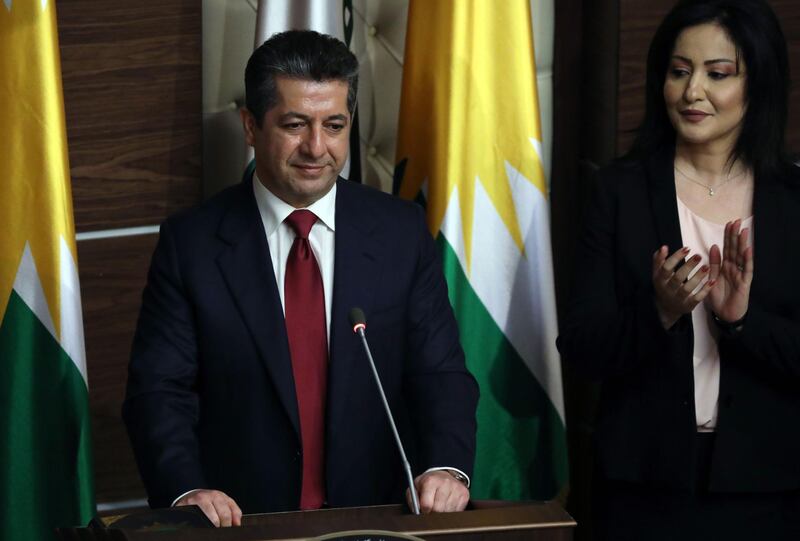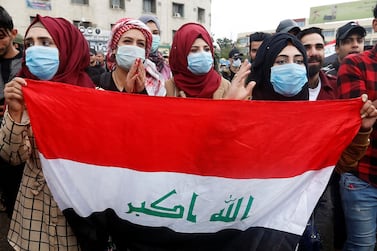Iraqi authorities have ordered the finance ministry to halt funding to the Kurdish north of the country, the latest move in recurring dispute over oil resources comprising the country’s only significant foreign currency flows.
A letter seen by The National from the Council of Ministers to Finance Minister Fouad Hussein and dated April 16, said his ministry was "obliged to stop making payments" to the Kurdistan Regional Government (KRG).
Mr Hussein, who is a Kurd and is close to Kurdish leader Massoud Barzani, the main Kurdish figure in the north, was unreachable when contacted by The National.
Differences over energy resources have been a long-running feature of Iraqi politics since the Kurdish administration began officially exporting oil through Turkey in 2009.
The Council of Minister’s letter cited failure of the KRG to share oil with the central government since at least October last year.
The letter said the KRG is obliged to hand all of its revenue from the export of at least 250,000 barrels per day (bpd) of oil to the central government in Baghdad.
Once the revenue from the 250,000 bpd is with the Baghdad government, the KRG can take its share of the budget, the letter said. Last year the central government agreed to give the KRG a 12.5 per cent share.
Iraq exports more than 3 million barrels per day, which places the country among Opec’s top five exporters. Most of Iraq’s oil is produced in the south, and in Kirkuk, a disputed northern region from where Iraqi Shiite militias expelled their Kurdish counterparts in 2017.
The latest spat assumes an added importance as Iraq’s prime minister-designate is seen as close to the Kurds, which could affect his efforts to form a government.
Intelligence chief Mustafa Al Kadhimi was the third figure asked by Iraq’s president Barham Saleh to form a government. Two nominees before him failed.
Mr Kadhimi is facing increasingly opposition from Shiite groups associated with militias backed by Iran, despite having indicated that they would not hinder his path to form a government.
When he was in exile in London in the 1990s and early 2000s Mr Kadhimi supported the Kurdish cause and remains on very good terms with many of the Kurdish politicians on the national and local scene.
Iraq’s care-taker prime minister, Adel Abdul Mahdi, has been running the government despite having been forced to resign under pressure from a grassroots protest movement in November.
A World Bank report this month said lower oil prices, the coronavirus, and “ongoing political turmoil are all challenges that the Government of Iraq will need to navigate in the short-term.
The report expected the economy to shrink by 5.1 per cent in 2020, compared with 4.1 per cent growth last year. Public debt is forecast to deepen over the same period from 58.5 per cent of GDP to 66.9 per cent.
The KRG is widely seen as better run than the rest of Iraq. But the Kurds in the north are deeply divided along clan and foreign allegiance lines.
The area has had de facto autonomy since the early 1990s because of a US-supervised ‘no-fly’ zone and the 2003 US-led invasion that removed Saddam Hussein. The country’s post Saddam constitution in 2005 designated Iraqi Kurdistan as a federal region but left main issues over revenue sharing and the status of Kirkuk undecided.







